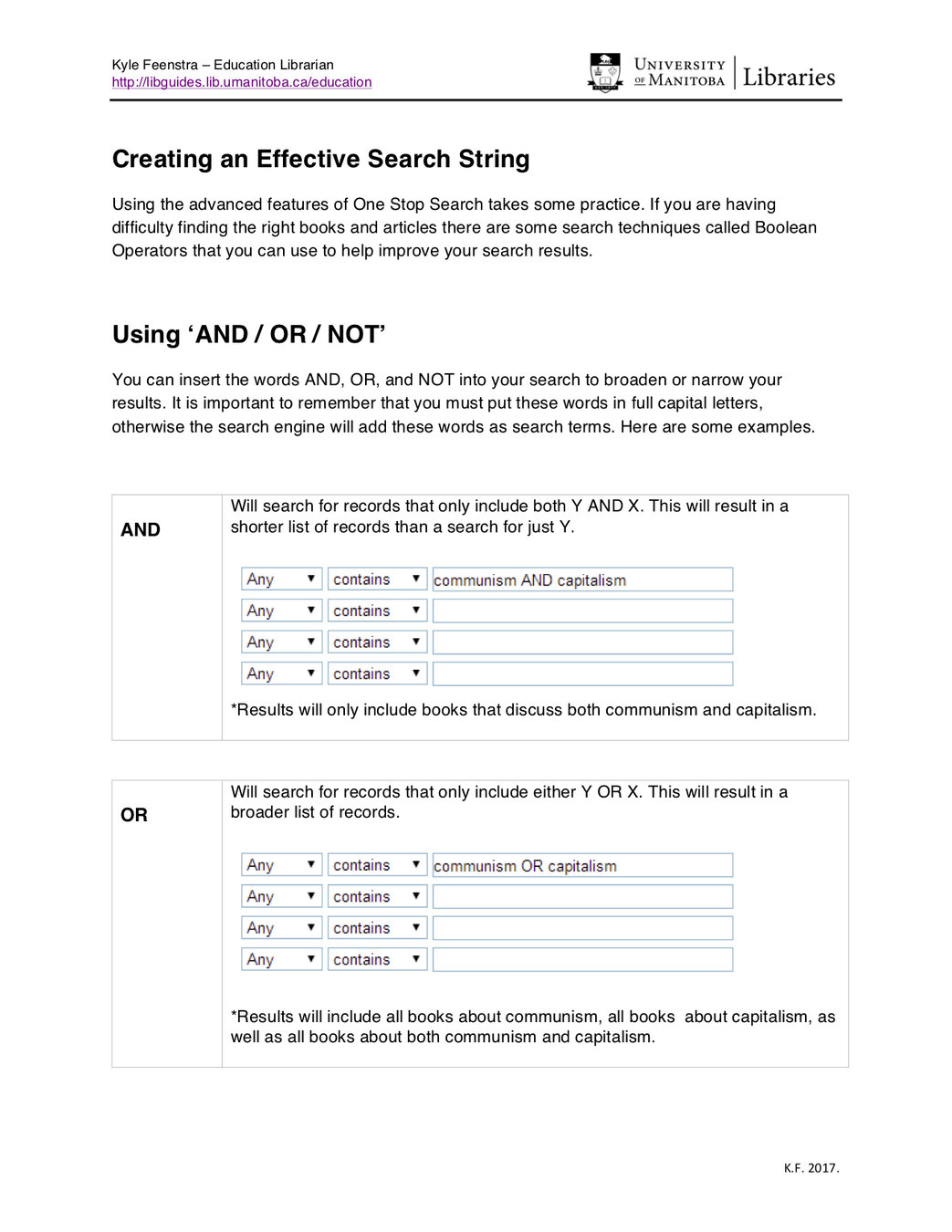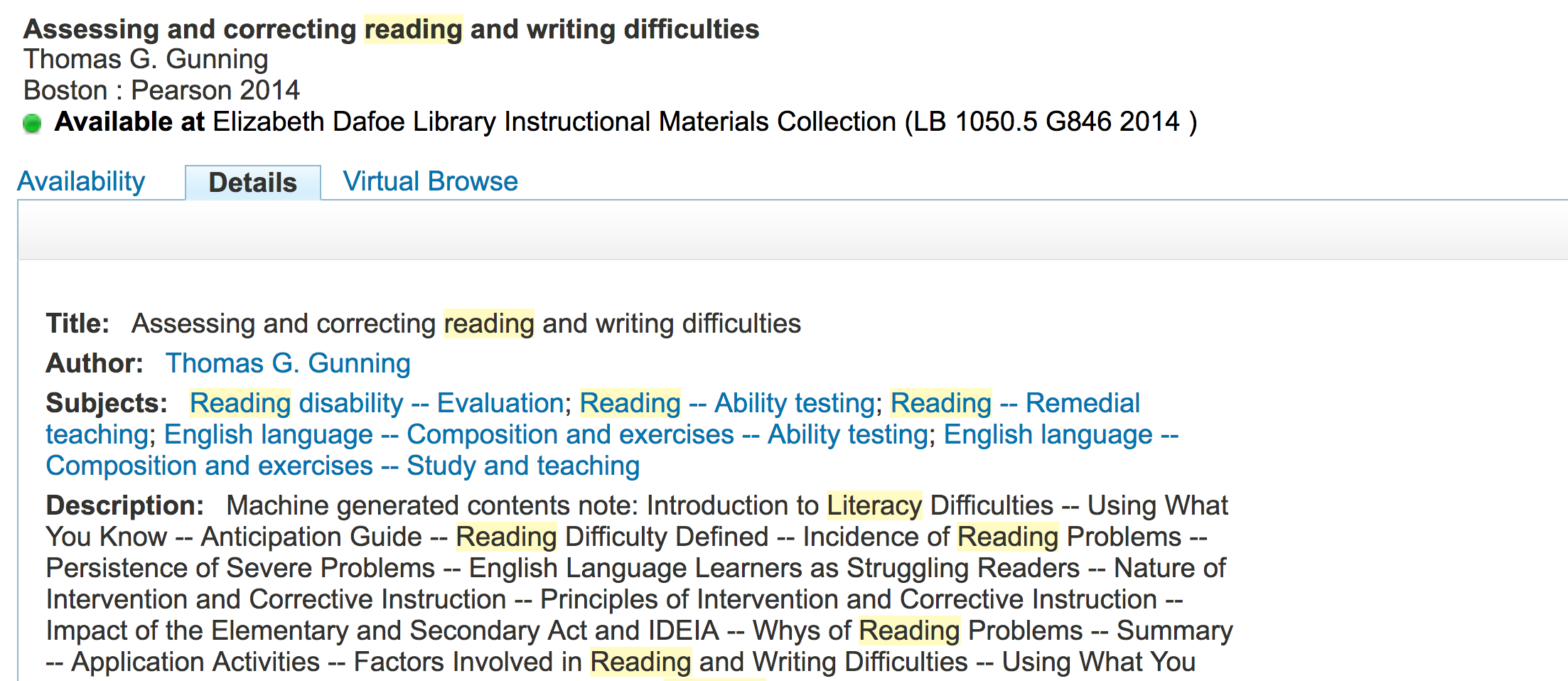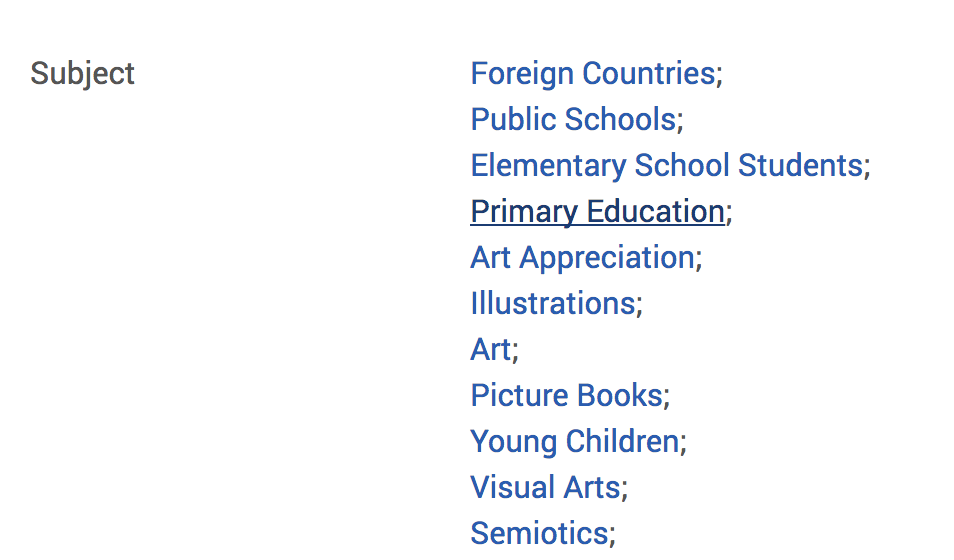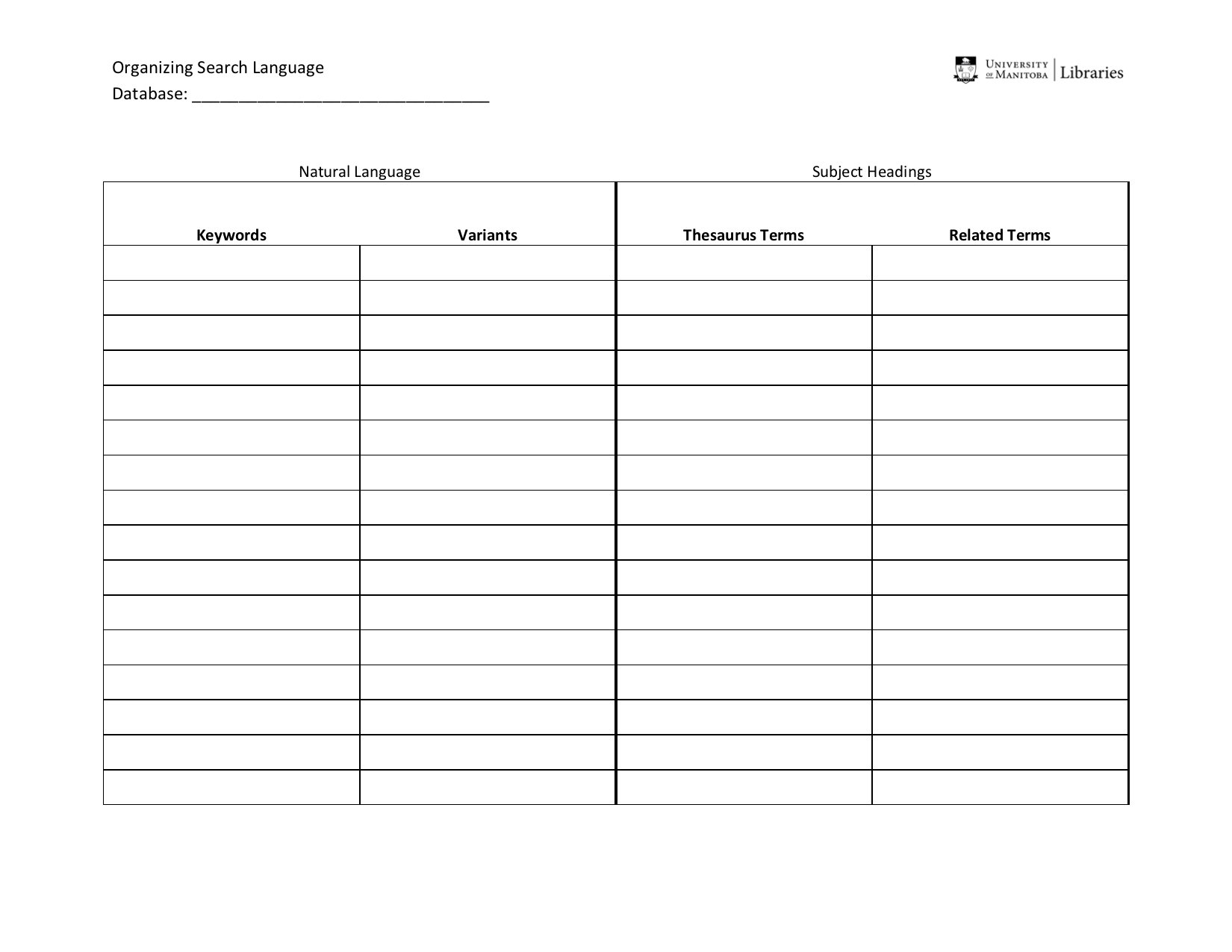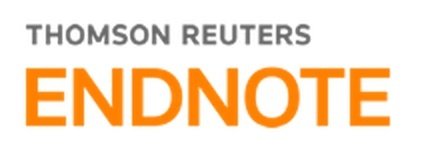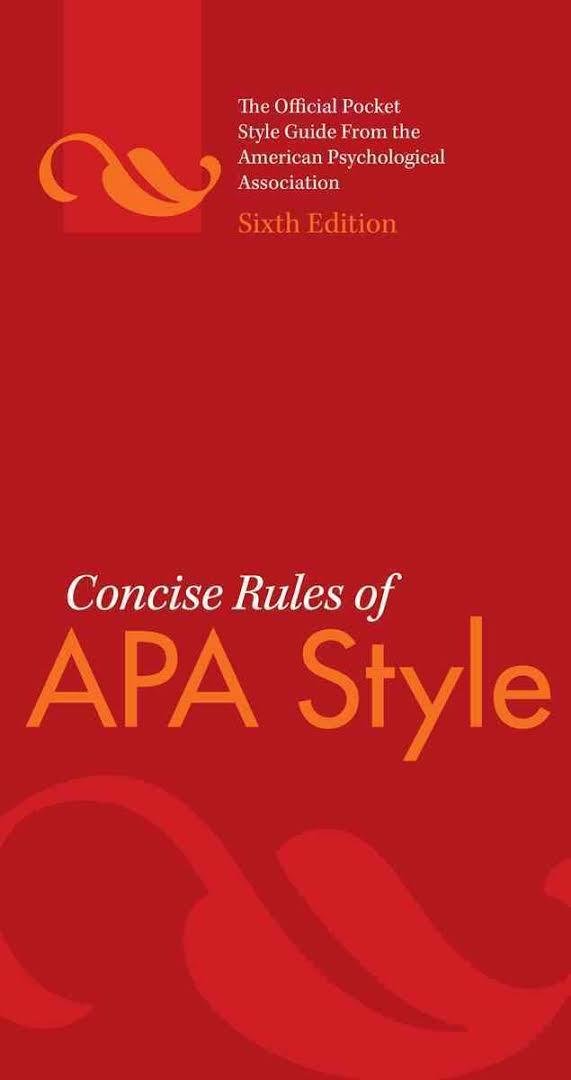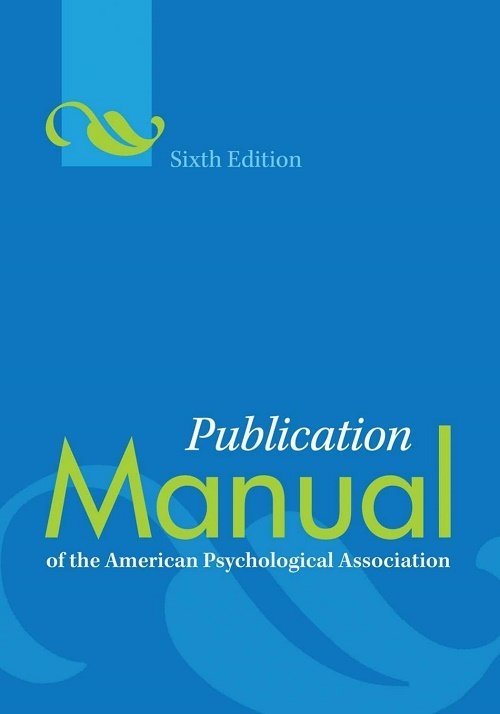Research in Education
EDUA 5670
May 8, 2018
Kyle Feenstra
Education & Psychology Librarian
Elizabeth Dafoe Library

What we will talk about today...
- Types of resources available at UM Libraries
- Basic and advanced search techniques
- Citation management
Where to get started...
The Information Landscape
| I'm looking for... | I'm searching with... |
|---|---|
| Scholarly Books Articles in Scholarly Journals Research Studies and Datasets Theses & Dissertations Digitized Primary Documents |
Library Catalogue Databases Google Scholar |
| Print Books Print Journals Rare Books & Documents |
Library Catalogue Archives |
| Academic Websites Open Access Publications |
Google Google Scholar |
| Policy Documents Govt Publications Statistics & Data News Media |
Library Catalogue Databases Government and NGO websites |
Accessing Scholarly Journals
Scholarly
Articles
(Restricted Access)
Databases
- Provide an index of articles published in academic journals
- Library provides access beyond paywall.
(Pay Wall)
Google
Scholarly Articles
(Open Access)
- Searches journal websites.
- Uses Google's search algorithms to retrieve articles.
What are scholarly journals?
- The journal publishes current research in a particular academic field.
- Articles are written for an academic audience in a scholarly community.
Identifying scholarly articles
- The article presents original research or analysis that is new to the field.
- Resources used to write the article are adequately cited with a bibliography and/or footnotes.
- The author has academic credentials.
What do we mean by "peer review"?
- Articles submitted to the journal are reviewed by independent scholars to ensure they meet the standards for research in that field prior to publication.
Identifying Peer Reviewed Journals
- The catalogue or database where it is found identifies the journal as a peer reviewed source. (Example)
- The journal editors identify the publication as peer reviewed.
- Peer review claims can be confirmed by Ulrich's Web.
Basic Search Techniques
- Here are some tips to get better search results in the library catalogue and databases.
- Combining search terms
- Using quotation marks
- Multiple word endings
- Search formulas with parentheses
Research as Language Learning
Search, read,
review the literature.
Develop an understanding of the literature considering relationships between concepts, authors, and publications.
Expand understanding & critique of concepts, theory, and data.
When searching for literature
it is beneficial to have:
-
Conceptual understanding of a research area.
-
Knowledge of how literature has been indexed in search engines.
-
Awareness of key researchers and authors.
- Familiarity with relevant publications.
- Our understanding of things is mediated through vocabulary that is contextual, cultural, and always subject to interpretation.
- The language of dialogue, research, and literature is not necessarily the same as the language we use for information retrieval.
Why is Language Important?
Natural Language
(i.e. Keywords)
Taxonomies
(i.e. Subject Headings)
Language that originates and is derived from speech, communication, written texts, and any other human interaction.
Language that is designated for organizing information and facilitating information retrieval.
Concepts, Keywords & Subject Headings
Concepts, Keywords & Subject Headings
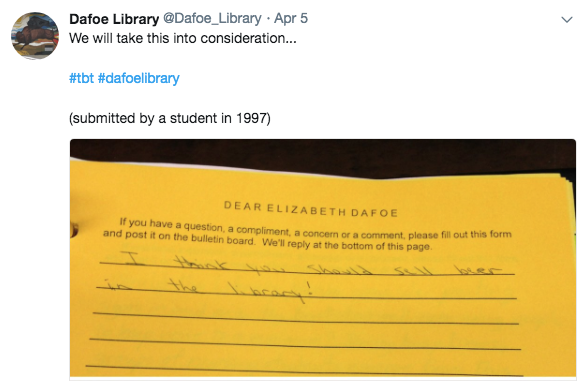
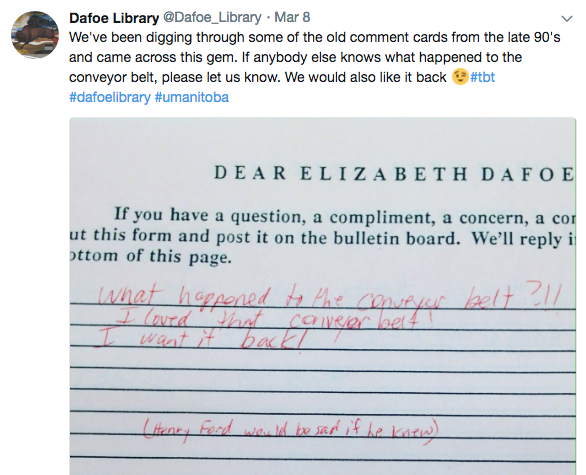
Subject Headings
results are based on a match with the subject heading field in the library or database record.
Subject headings are useful for identifying related materials.
Keywords
results are based on frequency of word use in the library or database record and possibly the document text.
... and any algorithms the search engine uses to determine "relevance"
When you search with...
Monograph Subject Headings
The Library of Congress assigns subject headings for all monograph publications
Examples of natural language and taxonomies in a library record?
Article Subject Headings
Databases organize subject headings in a thesaurus.
ERIC offers a comprehensive thesaurus for education.
Subject Heading Search Strategies
- Search with keywords to find relevant books or articles and use their subject headings to find similar materials.
- Find the preferred subject headings first by searching in the thesaurus provided by the database.
Example using ERIC

- All search results fit into a category of articles on the topic of "inclusion" in education.
- All search results will have the word "disability" appearing somewhere in the text.
- ERIC will put search results where "disability" appears in the title of the article at the top of the list.
Citation Management
There are many citation management apps available and
workshops* to help you learn how to use them.
Recommended APA Style Guides
Questions?
Kyle Feenstra
Education & Psychology Librarian
Elizabeth Dafoe Library
kyle.feenstra@umanitoba.ca

